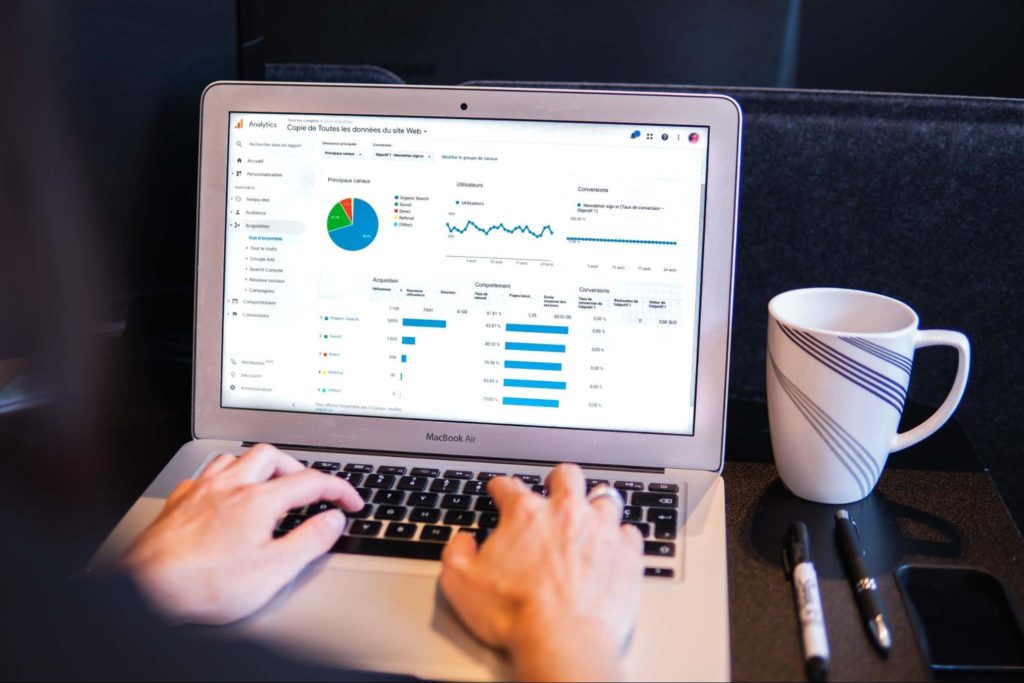There are no hard and fast rules regarding your marketing plans. As such, you would want to monitor and analyze their performance continually. This approach can help you assess whether or not you need to make any modifications. You may be wondering, “What information should I collect to measure the performance of my digital marketing efforts”?
Engagement Data – Including Likes, Shares, Comments, and Mentions
The level of overall engagement is one of the most crucial indicators to monitor. Keeping customers engaged is critical since it may potentially increase revenue and brand loyalty. There are several ways to engage customers, but these are the most common.
Likes: Many likes demonstrate engagement and encourage others to look at your work because people seek popular ideas.
Shares: Shares are a great way to gauge brand loyalty. They also help you in expanding your reach.
Comments: Comments indicate a higher degree of participation. More significantly, you may learn what your target audience loves and dislikes from the comments.
Mentions: Mentions allow you to see how many people are talking about you.

The purpose of collecting this sort of engagement data is to check for overall trends. Ideally, your engagement should rise or remain constant.
Website-related Data
Your website traffic is one of the most crucial data indicators to monitor in digital advertising. However, it would help if you looked at more than simply site traffic. For instance, you may also watch out for what visitors do on your website. Consider the following:
- Website traffic: This informs you of the number of people visiting your website.
- Bounce rate: The number of users that visit your website and then leave within seconds. A more significant score suggests that your website does not appeal to your target demographic or that your advertisements target the wrong people.
- Time spent on the website: This tells you how long you have to convert a website visitor.
Important Conversion Metrics
Conversions are another type of data that may help you track your digital marketing. This is especially critical if conversions are your ultimate aim. Remember that a conversion is someone purchasing your goods or service. Among the most vital of these data points are:
- Lead conversion rate: This number indicates how many of your qualifying leads turn into actual clients or customers.
- Cost per lead: Combine your data on how much you spend per lead with your data on the lead conversion rate to determine the average price per converted lead. Then, compare this to your revenue per lead to evaluate if your marketing techniques yield a return on investment.
- ROI: Return on Investment compares the amount of money invested in a campaign to the amount earned. It is one of the most crucial indicators of consumer satisfaction.
- Client lifetime value: calculating the average lifetime value of each successfully converted customer provides a better understanding of your ROI, or at least another way of looking at it.
- Sales income: Tracking sales revenue for different campaigns can help determine which ones are doing the best.
Bonus: Customer Data to Track to Improve Marketing Content
The statistics presented above are intended to assess the efficacy of your digital marketing strategy. However, you will also want to collect data about current and prospective consumers. This will allow you to focus your advertising better, resulting in more significant outcomes. These are some examples:
- Demographic data
- Contact information
- IP address information
- Behavioral data
How to Collect the Data

Collecting data can be as simple as using a program like Google Analytics. Any business can use Google Analytics, thanks to its impressive insights. You can also supplement it with other analytic programs such as those that track transactional data in addition to webpage activity. For consumer data, surveys are a great option, as is collecting some data at the point of sale, whether online or in-store.
Conclusion
Data tracking ensures that your digital marketing activities are on track. You should monitor both general and campaign-specific statistics. This will allow you to spend your marketing money better to have the most significant impact.

